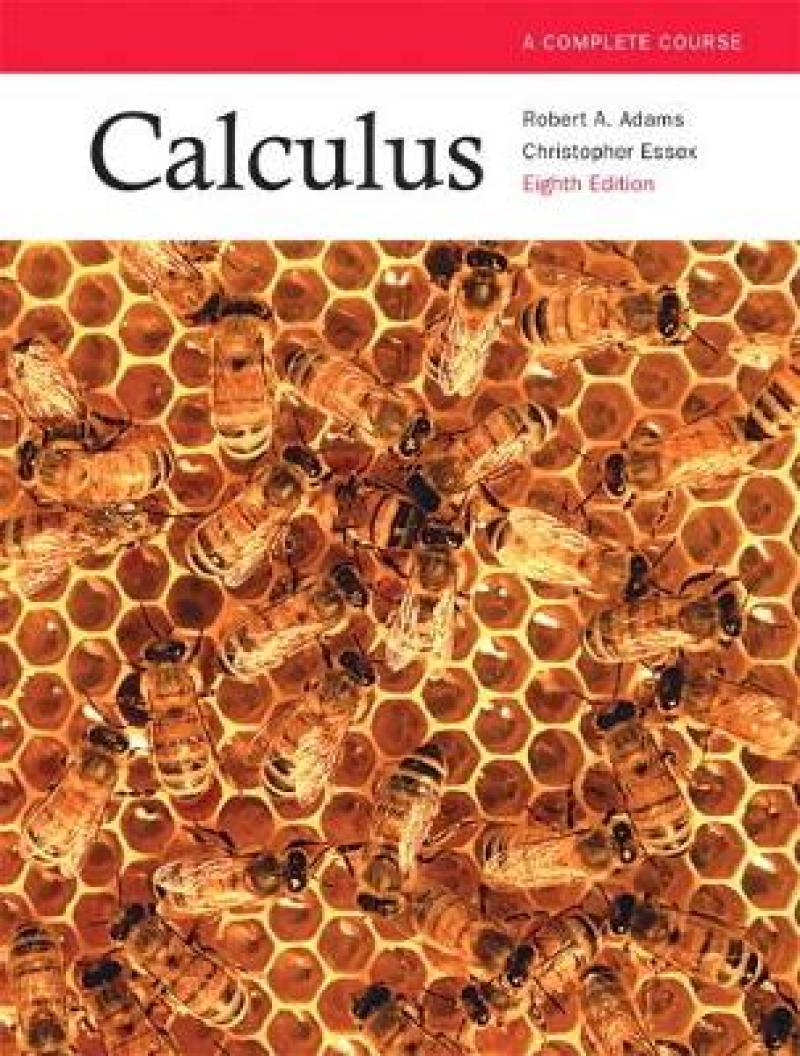This package includes a physical copy of Calculus: A Complete Course, 8th edition by Robert A. Adams and Christopher Essex as well as access to the eText and MyMathLab.
For the three-semester calculus course.
Proven in North America and abroad, this classic text has earned a reputation for excellent accuracy and mathematical rigour. Previous editions have been praised for providing complete and precise statements of theorems, using geometric reasoning in applied problems, and for offering a range of applications across the sciences. Written in a clear, coherent, and readable form, Calculus: A Complete Course makes student comprehension a clear priority.
Dr. Christopher Essex joined Bob Adams as a new co-author on the 7th edition and has an expanded role in the 8th edition. Instructors and students will appreciate new and expanded examples, new exercises, a new Chapter 17: Differential Forms and Exterior Calculus, and an expanded MyMathLab.
MyLab and Mastering from Pearson improve results for students and educators. Used by over ten million students, they effectively engage learners at every stage.
MyMathLab is being used in universities all over the world to improve student performance. MyMathLab has immersive content and engaging tools, along with time-saving automatic grading. "MyMathLab is everything that I need to get good results from my students. ... It saves me a lot of time so I have more time to do what I really should do and that's teach and help my students." - Dr Morten Brekke, Agder University, Norway.
With MyMathLab, students gain knowledge that they will use throughout their lives, and universities gain a partner deeply committed to helping students and educators achieve their goals.
For students
Personalised study plan: MyMathLab gives you the opportunity to test yourself on key concepts and skills and generates a study plan based on topics you have not yet mastered. The study plan links to interactive exercises with guidance, to give you help when you need it most.
Pearson eText gives you access to an eBook that can be used on the go, and allows you to highlight, search and take notes as you read online. Access to the eBook depends on the package you have bought.
Help Me Solve This breaks the problem down into manageable chunks so you can work through the methodology a stage at a time, applying what you've learnt as you go along.
The questions are free response so you can give truly mathematical answers using the intuitive yet comprehensive maths palette or the graphing tool.
For educators
Online assignments, tests, quizzes can be easily created and assigned to students.
Gradebook: Assignments are automatically graded and visible at a glance.
Register now to benefit from these resources.
A student access code card is included with your textbook at a reduced cost. To register with your code, visit www.mymathlab.co.uk.
For educator access, contact your Pearson account manager. To find out who your account manager is, visit www.pearsoned.co.uk/replocator
For more instructor resources available with this title, visit www.pearsoned.co.uk
Les mer
Front Matter
Chapter P: Preliminaries
Chapter 1: Limits and Continuity
Chapter 2: Differentiation
Chapter 3: Transcendental Functions
Chapter 4: More Applications of Derivatives
Chapter 5: Integration
Chapter 6: Techniques of Integration
Chapter 7: Applications of Integration
Chapter 8: Conics, Parametric Curves, and Polar Curves
Chapter 9: Sequences, Series, and Power Series
Chapter 10: Vectors and Coordinate Geometry in 3-Space
Chapter 11: Vector Functions and Curves
Chapter 12: Partial Differentiation
Chapter 13: Applications of Partial Derivatives
Chapter 14: Multiple Integration
Chapter 15: Vector Fields
Chapter 16: Vector Calculus
Chapter 17: Differential Forms and Exterior Calculus (New Chapter)
Chapter 18: Ordinary Differential Equations
Appendix I: Complex Numbers
Appendix II: Complex Functions
Appendix III: Continuous Functions
Appendix IV: The Riemann Integral
Appendix V: Doing Calculus with Maple
Answers to Odd Numbered Exercises
Index
Les mer
Produktdetaljer
ISBN
9781447955412
Publisert
2013-03-21
Utgave
8. utgave
Utgiver
Pearson Education Limited
Vekt
2194 gr
Høyde
283 mm
Bredde
215 mm
Dybde
41 mm
Aldersnivå
05, U
Språk
Product language
Engelsk
Format
Product format
Annet
Forfatter
